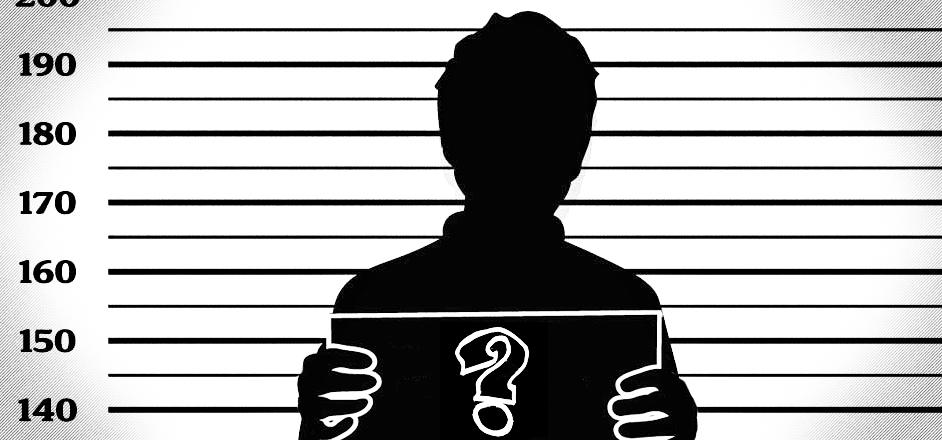“The tide is going to turn against sex offender registries when people realize they’re more likely to end up on the registry than to be molested by someone on it,” says Lenore Skenazy, author, columnist and activist for the elimination of sex offender registries.
She lists off the offenses that could put a person on a public list of social outcasts widely seen as pedophiles, predators and rapists:
You could be a sex offender if you go to a prostitute. You could be a sex offender if you urinate in public. You could be a sex offender if you go streaking. You could be a sex offender if you touch a stripper. You could be a sex offender if you dated a 15-year-old when you were 19-years-old.
What’s worse, “there are a lot of wrongful convictions in sex cases. A lot of wrongful accusations,” says William Dobbs, lawyer and civil libertarian based out of New York City.
Skenazy and Dobbs want sex offender registries eliminated in the United States. And they’re not alone. Although the vast majority of the American public supports the idea of using registries to keep a close eye on sex offenders, there are voices rising in opposition, saying that sex offender registries are ineffective and often horribly cruel.
The original goal of publishing a list of sex criminals was to protect communities. Parents who worried about the safety of their little ones could pull up a map of sex offenders in their area, and feel more secure knowing which neighbor was more likely to give their kid roofie-laced Halloween candy.
But the maps served the opposite purpose. Instead of feeling more secure, parents freaked out. They’d find that they’re surrounded by sexual deviants — that each dot on the map represents a sex offender, and their map is more speckled than a Jackson Pollock painting.
“It makes you think everyone who’s a dot raped a baby. It makes you think anyone convicted of a sex offense is a fiendish, depraved, child-pouncing predator who when given the chance will drag your child into the bushes,” Skenazy says.
Sex offender registries don’t make us feel safer, and there’s also no evidence that they actually increase safety in any meaningful way. A number of studies have found that putting someone on the registry has no effect on their likelihood to reoffend.
The mistaken assumption that registries protect anyone is mostly based in the myth of stranger danger. However, “when you start worrying about the stranger down the street, you’re looking in the wrong direction,” Skenazy says, “the vast majority of sex offenses are not committed by people on the registry, but by someone the victim knows.”
Another widespread belief about sex offenders is that they often go on to re-offend — “they can’t stop, they won’t stop.” In several landmark rulings the US Supreme Court said the rates of re-offense are “frightening and high.”
But a 2015 law review article revealed there was actually no evidence to back this up. Now, major newspapers are writing stories which shame the Supreme Court for promoting a falsehood, and the work to dismantle the myth continues.
In truth, the re-offense rates of people on the registry are just about the lowest of any category of crime. And slowly the public is learning that the fears about those dots on the maps are wildly exaggerated.
There have even been occasions when sex offender registries made reoffending more likely. For example, for years Miami’s strict residency requirements, meant to keep offenders a safe distance away from the kiddies, forced them all into a small colony under a bridge.
“If you make it illegal to live anywhere in a town, it pushes people into homelessness, and folks who are desperate and have no support structures are at much higher risk of reoffending,” Dobbs says.
Not only can registries be counterproductive, they can also be excessively harsh and severe.
“Getting put on the registry has a terrible impact on your life,” Dobbs says. “It can destroy your career, makes it very difficult to get jobs. It brings routine discrimination, a lot of harassment, and vigilante attacks, some of them fatal.”
Opponents say the registry is a way to continue punishing offenders even after they’ve served their sentences. It turns people into social pariahs, and once they’re made to seem like monsters, it becomes much easier to strip away their rights and humanity.
Take, for example, the dehumanizing trip wires and red tape anyone on the registry has to navigate.
“It’s like you’re surrounded by walls with knives. If you change your facial hair and don’t register your moustache, get a tattoo, change an email address, get a new job, change apartments, it’s all seen through the lense of ‘you must have been doing that so the children won’t recognize you,’” Skenazy says. She adds that failing to make a registration deadline is typically a felony.
In an unprecedented move for the courts, a federal judge recently ruled that the Colorado sex offender registry is unconstitutional, calling it “cruel and unusual punishment.” The judge noted that offenders face a “serious threat of retaliation, violence, ostracism, shaming and other unfair and irrational treatment from the public.”
Eliminating sex offender registries entirely would not be easy. Only a handful of countries in the world still have them, but many American citizens, courts and legislatures continue to believe that registries protect the public. However, there is progress in removing some offenders, including juveniles and people who are mentally disabled or along the autism spectrum.
There’s largely one thing holding their movement back, Skenazy says — that “it’s easier to fight people who are openly awful than to fight the people who think they’re making the world more virtuous.”



Leave a Reply
You must be logged in to post a comment.